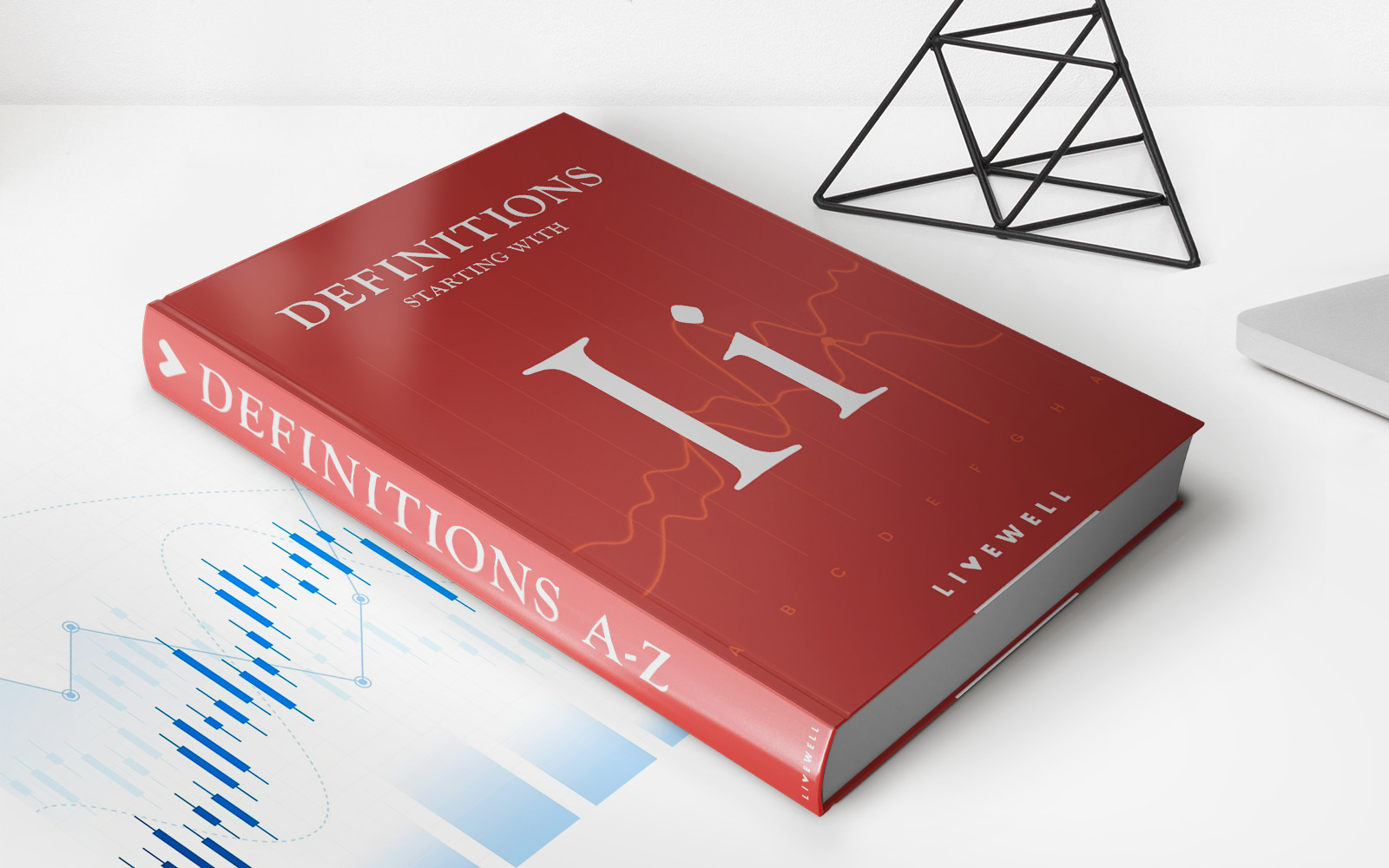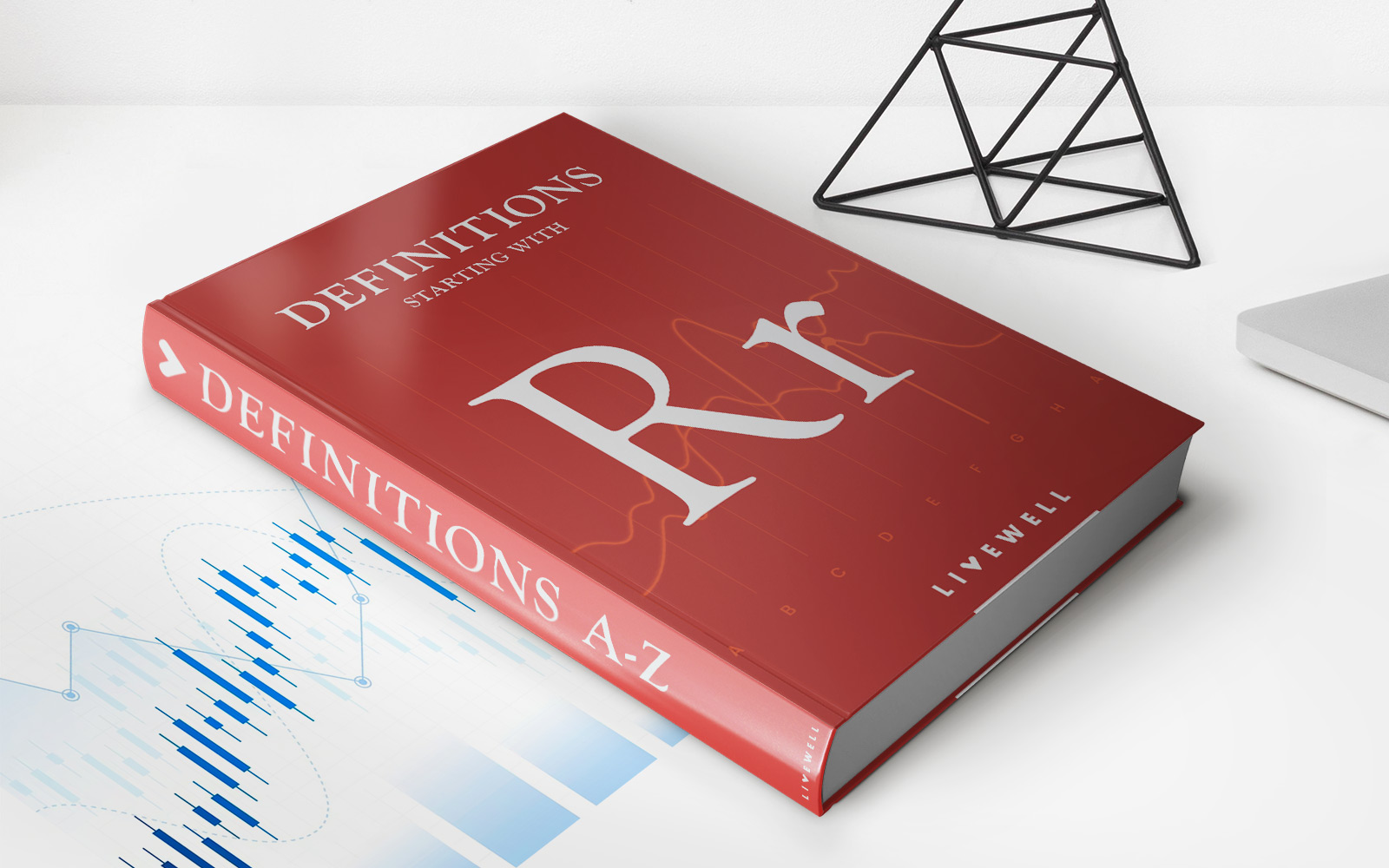

Finance
What Is Limited-Pay Life Insurance?
Published: November 3, 2023
Learn about limited-pay life insurance and how it can benefit your finances. Explore the concept and advantages of this insurance option.
(Many of the links in this article redirect to a specific reviewed product. Your purchase of these products through affiliate links helps to generate commission for LiveWell, at no extra cost. Learn more)
Table of Contents
Introduction
Welcome to the world of limited-pay life insurance! In this article, we will delve into the ins and outs of this unique insurance product and explore how it can benefit you. Life insurance is a crucial aspect of financial planning, providing protection and peace of mind for you and your loved ones. However, traditional life insurance policies may require you to pay premiums throughout your entire life, which can become burdensome over time.
This is where limited-pay life insurance comes in. As its name suggests, limited-pay life insurance allows you to make premium payments for a limited period, after which you are no longer required to continue paying. This arrangement provides a host of advantages, but it’s essential to understand how it works and carefully consider whether it aligns with your financial goals and circumstances.
Throughout this article, we will explore the fundamentals of limited-pay life insurance, its benefits, drawbacks, and discuss whether it’s the right option for you. So, strap in and let’s navigate the intricacies of limited-pay life insurance together.
What is Limited-Pay Life Insurance?
Limited-pay life insurance is a type of life insurance policy that allows policyholders to pay premiums for a predetermined number of years. Once the premium payments are completed, the policy remains in force for the rest of the insured’s life, offering lifelong coverage without the need for further payments. This feature distinguishes limited-pay life insurance from traditional whole life or universal life policies, where premium payments are typically required throughout the insured’s lifetime.
With limited-pay life insurance, policyholders have the flexibility to choose the premium payment period based on their preferences and financial capabilities. Common options may include 10, 15, or 20 years, although longer or shorter durations may also be available. During the selected payment period, the premiums remain fixed, providing predictability and stability in your financial planning.
One key aspect of limited-pay life insurance to understand is the potential for accelerated cash value accumulation. Since premium payments are condensed into a shorter time frame, a larger portion of each payment goes towards building the policy’s cash value. This can result in faster growth of the cash value component, allowing policyholders to access accumulated funds through policy loans or withdrawals if needed.
It is important to note that limited-pay life insurance is typically offered as a variant of permanent life insurance. Permanent life insurance, including whole life, universal life, and variable life, provides coverage for the entire lifetime of the insured, as long as premiums are paid. The cash value component of limited-pay life insurance also offers certain tax advantages, such as tax-deferred growth and the ability to withdraw funds on a tax-advantaged basis under certain circumstances.
Now that we have a basic understanding of what limited-pay life insurance entails, let’s dig deeper into how it works.
How Does Limited-Pay Life Insurance Work?
Limited-pay life insurance works by allowing policyholders to pay premiums for a specified number of years, after which they are no longer required to make payments. The coverage remains in force for the rest of the insured’s life. Here’s a breakdown of how limited-pay life insurance works:
- Selecting the Payment Period: When purchasing a limited-pay life insurance policy, you are given the option to choose a payment period. This can range from as short as 10 years to as long as 30 years, depending on the insurer and policy options available. The payment period determines the number of years you will be making premium payments.
- Determining the Premium Amount: The premium amount for limited-pay life insurance is typically determined based on factors such as age, health, gender, and the desired death benefit. The premium payments are spread over the chosen payment period and remain fixed throughout that time.
- Completing Premium Payments: Once you select the payment period and start the policy, you will be required to make premium payments on time for the specified number of years. It’s important to make these payments consistently to maintain the coverage.
- Lifelong Coverage: After completing the premium payments, the limited-pay life insurance policy remains in force for the rest of your life. This means that you will continue to have life insurance coverage without having to make any further premium payments.
- Accumulating Cash Value: Limited-pay life insurance policies often include a cash value component. During the premium payment period, a portion of each premium payment goes towards building the policy’s cash value. This cash value grows over time, either at a guaranteed rate or based on market performance if it is a variable life insurance policy.
- Accessing the Cash Value: Once sufficient cash value has accumulated, policyholders have the option to access it through policy loans or withdrawals. These funds can be used for various purposes, such as supplementing retirement income, paying for educational expenses, or covering unexpected financial burdens. It’s important to note that accessing the cash value may affect the death benefit and could incur interest or fees.
Understanding how limited-pay life insurance works can help you make an informed decision about whether it aligns with your financial goals and needs. In the next section, we will explore the benefits of limited-pay life insurance.
Benefits of Limited-Pay Life Insurance
Limited-pay life insurance offers several benefits that make it an attractive option for individuals seeking lifelong coverage without the burden of premium payments in their later years. Let’s explore some of the key advantages:
- Financial Planning: Limited-pay life insurance provides predictability in financial planning. With a set premium payment period, policyholders can budget accordingly and ensure that their insurance needs are met without the worry of continuous premium payments throughout their lifetime.
- Lifelong Coverage: Once the premium payments are completed, the limited-pay life insurance policy remains in force for the rest of the insured’s life, providing lifelong coverage. This can be particularly beneficial for individuals who want to ensure that their loved ones are financially protected even in their later years.
- Cash Value Accumulation: Limited-pay life insurance policies often build cash value over time. As a result, policyholders can accumulate funds that can be accessed through policy loans or withdrawals. This cash value component can provide a valuable source of financial flexibility and liquidity when needed.
- Flexibility in Premium Payments: Selecting the payment period allows individuals to customize their premium payments based on their financial capabilities and preferences. Shorter payment periods may lead to higher premiums but will result in quicker completion of payments, while longer payment periods may offer lower premium amounts spread over a longer time frame.
- Tax Advantages: The cash value component of limited-pay life insurance policies may offer certain tax advantages. The growth of the cash value is typically tax-deferred, meaning you won’t owe taxes on it until you withdraw the funds. Additionally, policyholders may be able to access the cash value through tax-advantaged loans or withdrawals under certain circumstances.
- Peace of Mind: Knowing that you have lifelong coverage and have completed your premium payments can bring peace of mind. Limited-pay life insurance alleviates concerns about affordability and the risk of missed payments in the future, ensuring an uninterrupted policy for the duration of your life.
These benefits highlight the advantages that limited-pay life insurance can offer. However, it’s important to consider the potential drawbacks as well. Let’s explore those in the next section.
Drawbacks of Limited-Pay Life Insurance
While limited-pay life insurance offers several benefits, it’s important to consider the potential drawbacks before making a decision. Here are some of the key drawbacks to keep in mind:
- Higher Premiums: One of the trade-offs of limited-pay life insurance is that the premium payments tend to be higher compared to a traditional life insurance policy with a longer payment period. This is because the premium payments need to be condensed into a shorter time frame to complete the policy.
- Shorter Payment Period: While limited-pay life insurance offers the advantage of completing premium payments sooner, it also means that you need to commit to paying higher premiums over a shorter period. This may pose a financial challenge for some individuals who may find it difficult to meet the increased premium obligations within the selected payment period.
- Potential Lapse in Coverage: If you miss premium payments during the payment period, there is a risk that your limited-pay life insurance policy may lapse and no longer provide coverage. It’s crucial to ensure that you can afford the premium payments consistently to maintain the policy in force.
- Delayed Cash Value Growth: Since a larger portion of the premium payments goes towards building the cash value, the growth of the cash value during the payment period may be slower compared to a traditional life insurance policy. It may take longer to accumulate significant cash value that can be accessed through policy loans or withdrawals.
- Reduced Flexibility: Once the premium payments are completed, the limited-pay life insurance policy continues for the rest of your life, and you are no longer required to make further payments. While this provides peace of mind, it also means that you lose the flexibility to adjust or modify your coverage or payment structure in the future.
It’s important to carefully consider these drawbacks in the context of your individual financial situation and long-term goals. Evaluating the potential disadvantages alongside the benefits will help you determine if limited-pay life insurance aligns with your needs.
Is Limited-Pay Life Insurance Right for You?
Determining whether limited-pay life insurance is the right choice for you depends on several factors. While it offers benefits such as lifelong coverage, predictable premium payments, and potential cash value accumulation, it may not be suitable for everyone. Here are some considerations to help you make an informed decision:
- Financial Stability: Evaluate your financial stability and ability to afford higher premium payments over a shorter period. Limited-pay life insurance requires you to pay higher premiums compared to traditional life insurance with longer payment periods. Ensure that you can comfortably meet the financial obligation without compromising your overall financial well-being.
- Long-Term Coverage Needs: Consider your long-term coverage needs. If you want to ensure that your loved ones are financially protected for your entire lifetime, limited-pay life insurance can provide that peace of mind. However, if you only need coverage for a specific period, such as until your mortgage is paid off or until your children are financially independent, other life insurance options may be more appropriate.
- Cash Value Accumulation: Assess whether the potential for cash value accumulation aligns with your financial goals. Limited-pay life insurance tends to accumulate cash value at a slower rate during the premium payment period. If building cash value quickly is a priority, other investment vehicles may offer better options.
- Tax Considerations: Evaluate the tax advantages offered by limited-pay life insurance. The tax-deferred growth of the cash value component and the potential for tax-advantaged policy loans or withdrawals can be advantageous for certain individuals. Consult with a tax professional to fully understand the tax implications based on your specific circumstances.
- Flexibility Needs: Consider your need for flexibility in adjusting your coverage or payment structure in the future. Limited-pay life insurance locks in your premium payments and coverage once the payment period is completed. If you anticipate the need for flexibility in the future, such as reducing your coverage or adjusting payment amounts, other life insurance options may provide greater flexibility.
Ultimately, the decision to opt for limited-pay life insurance should align with your financial goals, risk tolerance, and long-term plans. It is advisable to consult with a trusted financial advisor or insurance professional who can assess your unique circumstances and guide you towards the most suitable life insurance solution.
Conclusion
Limited-pay life insurance offers a unique approach to lifelong coverage with the benefit of completing premium payments within a specified period. It provides financial stability, predictable premium payments, and the potential for cash value accumulation. However, it may not be suitable for everyone, as it comes with some drawbacks, including higher premiums and reduced flexibility in the future.
When considering limited-pay life insurance, it’s essential to assess your financial stability, long-term coverage needs, and goals for cash value accumulation. Additionally, considering tax implications and flexibility requirements can help you make an informed decision.
If you value the peace of mind of lifelong coverage and have the financial capacity to afford higher premium payments over a shorter period, limited-pay life insurance may be a suitable option for you. On the other hand, if you have specific coverage needs for a defined period or require more flexibility in adjusting your policy, other life insurance options may be better suited to your circumstances.
As with any financial decision, it’s important to consult with a financial advisor or insurance professional who can assess your individual needs and guide you toward the most appropriate life insurance solution.
Remember, life insurance is a critical component of financial planning, so take the time to evaluate your options and choose the policy that aligns with your goals and provides the protection you and your loved ones need.
Now that you have a comprehensive understanding of limited-pay life insurance, you are ready to make an informed decision about whether it is the right choice for you. Good luck on your journey to secure lifelong coverage and financial peace of mind!














